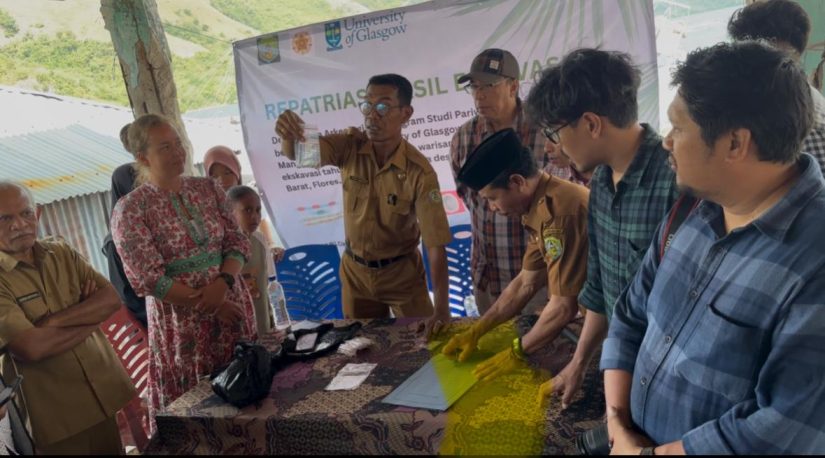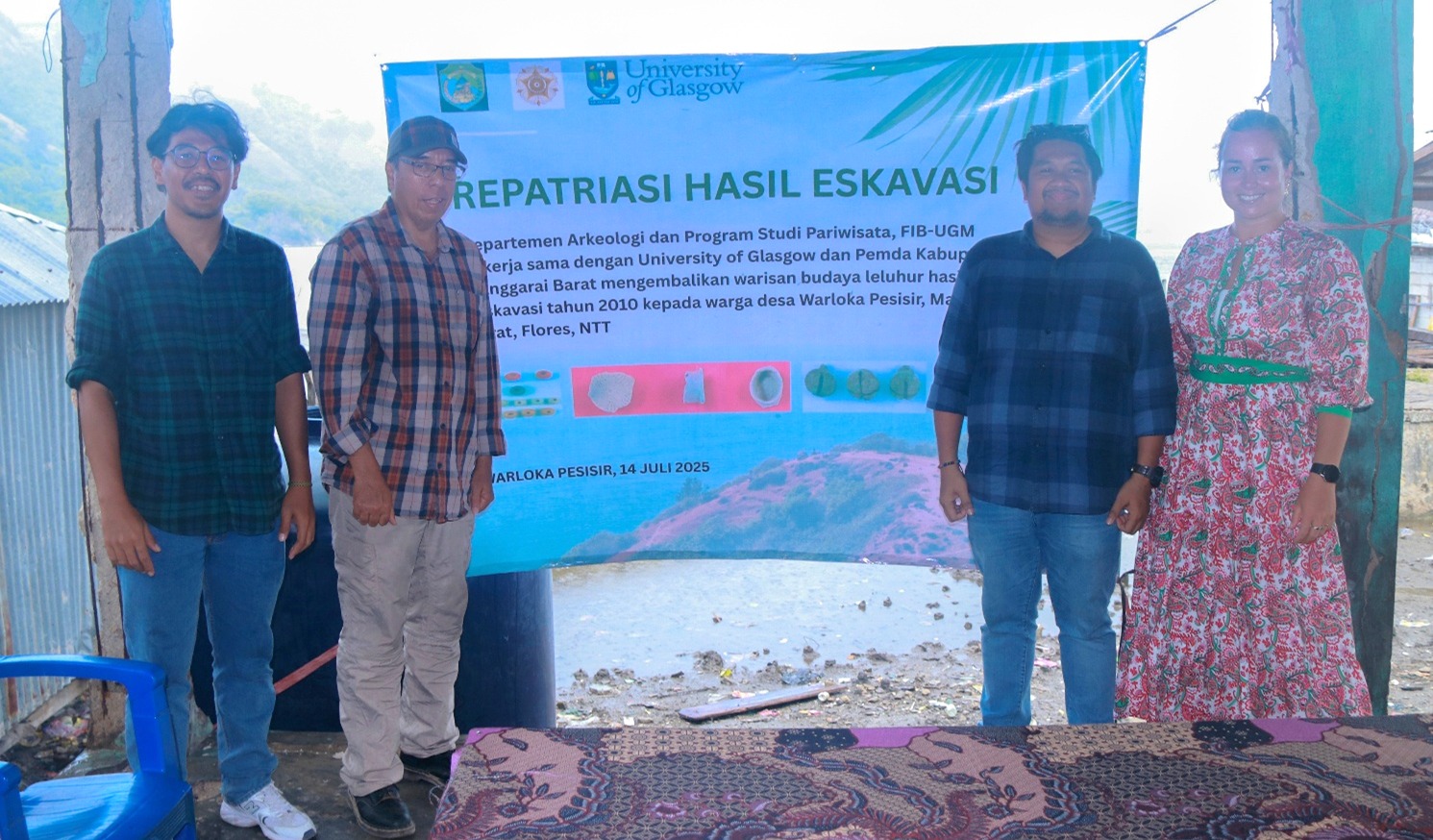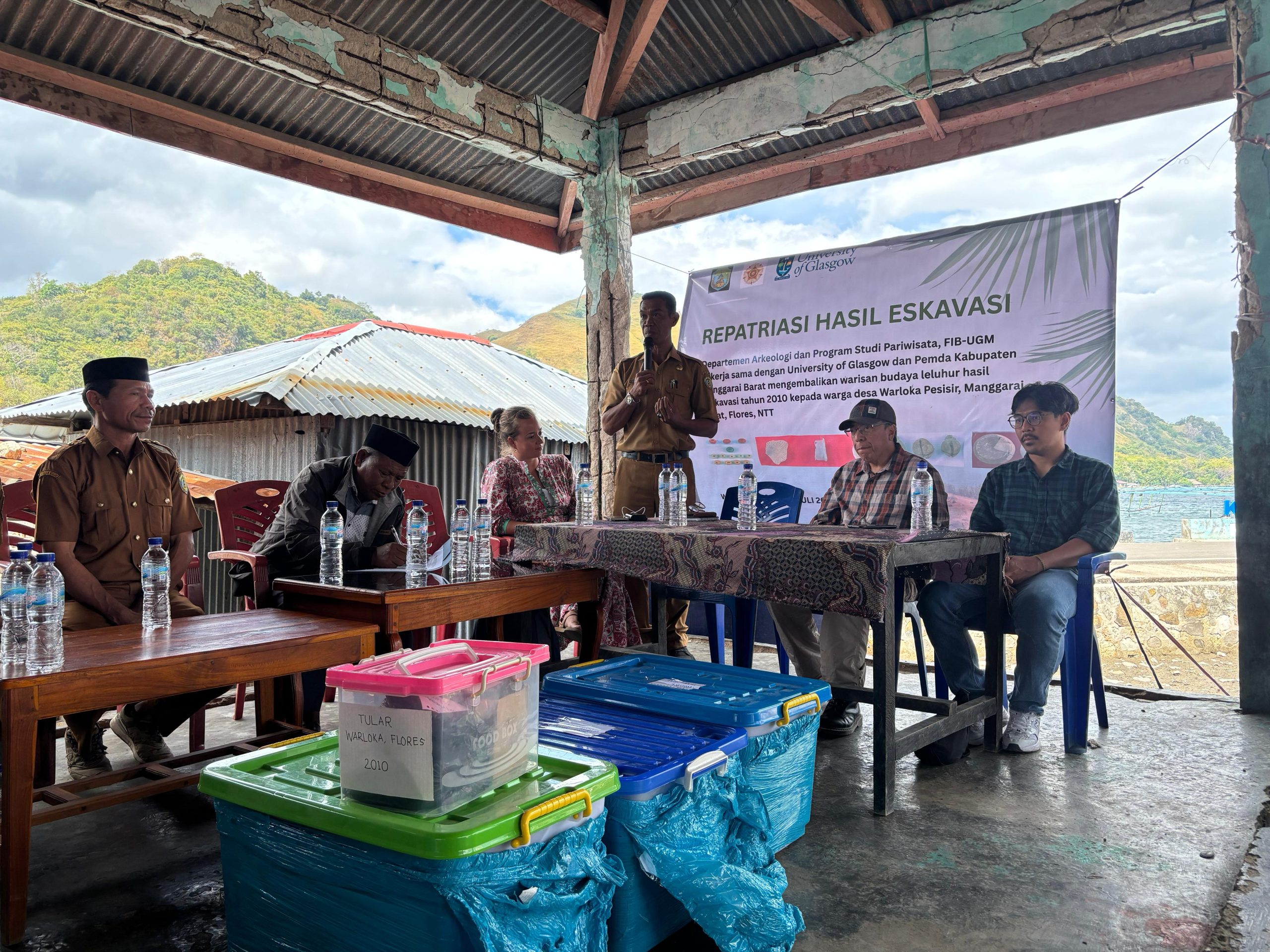
Universitas Gadjah Mada (UGM), through its Department of Archaeology and the Tourism Study Program, Faculty of Cultural Sciences (FIB), returned cultural heritage items to the Warloka community in Labuan Bajo, East Nusa Tenggara (14/7). This significant event involved the handover of approximately 40 kilograms of artifacts that had been excavated 15 years ago and stored at UGM for research purposes. The artifacts are categorized into 15 types, including jewelry, tools, ceramics, pottery, coins, and the remains of three ancestral individuals.
This initiative is part of a repatriation process that emphasizes the ethical responsibility within the academic world. Beyond the physical return of items, this repatriation reflects a critical reflection on the role of researchers and the necessity of sharing research benefits equitably. The act of returning these artifacts is a significant step towards acknowledging cultural diversity and the rights of local communities.

Dr. Tular Sudarmadi, the head of the repatriation team, highlighted that cultural heritage should not be managed through exploitative approaches rooted in colonial practices. He emphasized the need for academics to build equitable relationships with the communities that are part of their research subjects. Dr. Sudarmadi expressed a moral imperative to return these artifacts to the Warloka community, reinforcing the importance of civil society partnerships in preserving cultural heritage.
In addition, Dr. Rucitarahma Ristiawan from FIB noted that the return of these artifacts is a crucial part of the struggle for epistemic justice. He stated that this action is not merely symbolic but reflects a transformation in academic practices towards a more ethical direction. He stressed the importance of recognizing the value of local knowledge systems and providing space for communities to narrate their own histories.
The repatriation process also involved UGM’s postgraduate archaeology student, Oto Alcianto, and received support from art crime and criminology researcher Dr. Emiline Smith from the University of Glasgow. Dr. Smith views this repatriation as a symbol of a significant shift that encourages academics to be more aware of their ethical responsibilities. She also emphasized the need for government support in helping institutions manage the respectful storage and return of cultural heritage.

The remains of the ancestors are planned to be reburied according to the customs and beliefs of the Warloka community. Meanwhile, other cultural artifacts will be temporarily stored at the local Tourism Office until a dedicated exhibition space in Warloka is completed. The local government and community plan to use this momentum to enhance tourist education regarding local history and the importance of collaborative research in preserving cultural heritage.
The Warloka community has expressed its commitment to safeguarding and protecting the archaeological findings in the area. This event not only marks a significant milestone in the repatriation of cultural heritage but also serves as a reminder of the importance of cultural diversity and community engagement in the preservation of history.
As UGM continues to develop institutional guidelines for the management of archaeological excavation artifacts, this initiative stands as a pioneering effort in Indonesia. It highlights the need for ethical practices in academia and the importance of civil society partnerships in fostering a more inclusive approach to cultural heritage management.
Source: ugm.ac.id
Photos: Dok. Research Team

